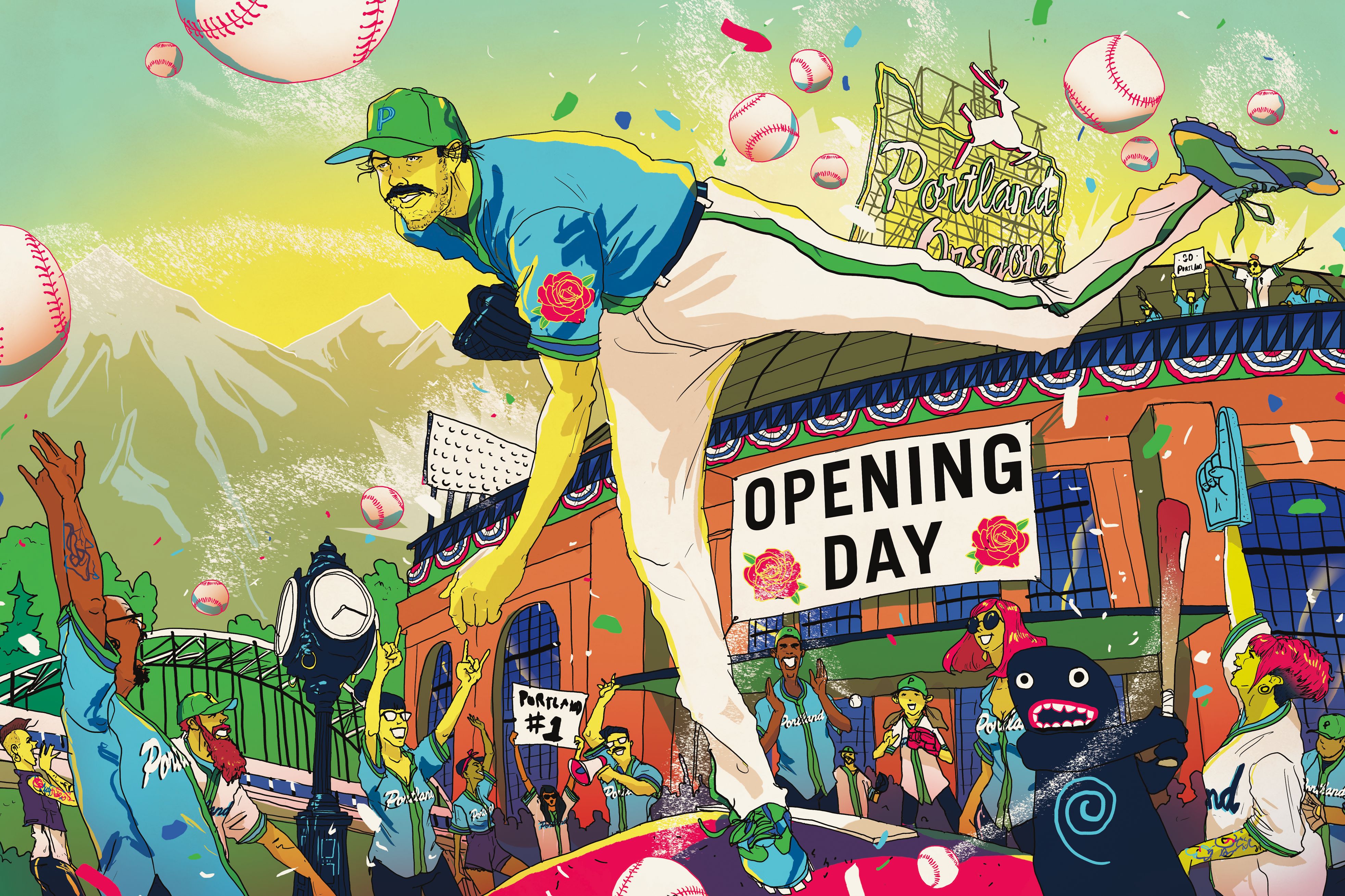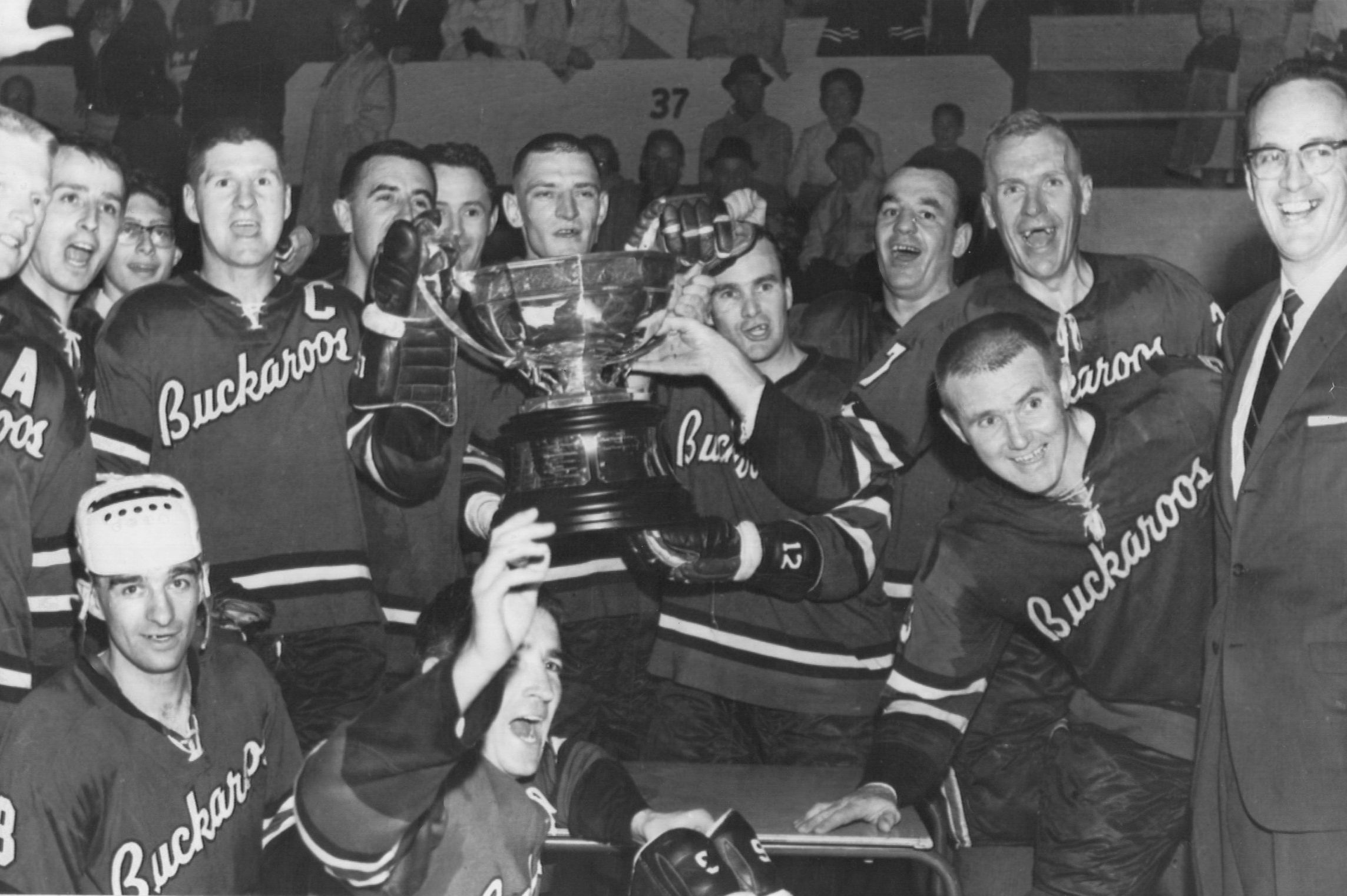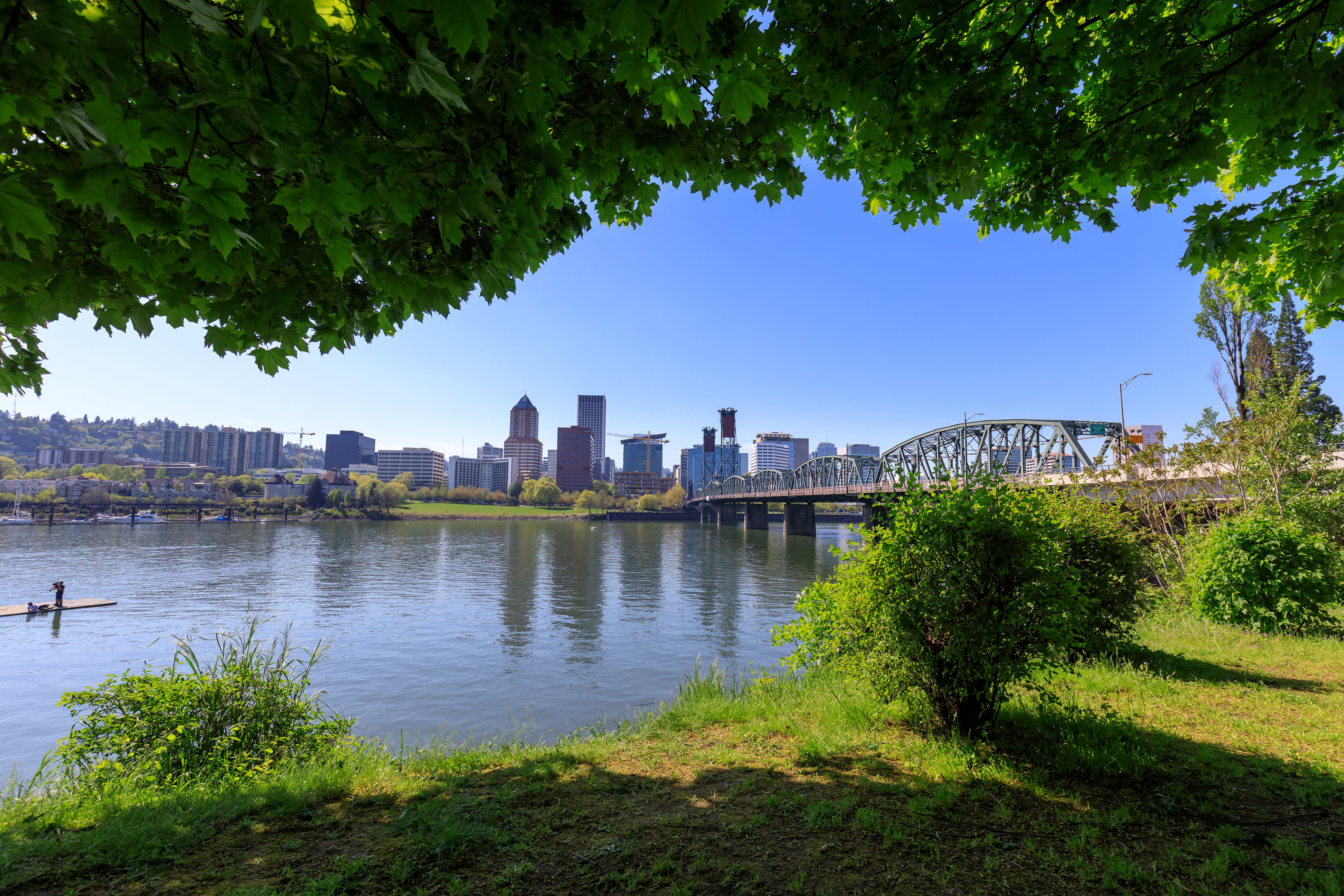
What Would Major League Baseball Mean for Portland?
Bottom of the ninth. The Seattle Mariners lead the Portland ________s, 4–3. Portland’s got a runner on first, as designated hitter Bryce Harper steps up to the plate. He’s seen better days—which is why the Yankees let Portland’s newbie team grab him in the expansion draft—but even at 35 (hey, it’s 2028) he can still be dangerous.
The crack of the bat! A hard-hit ball toward Pesky Plaza ... AND THAT ONE IS IN THE WILLAMETTE, DAMMIT! A 5–4 walk-off win! In a luxury box, co-owner Russell Wilson high-fives Kurt Russell. Ciara hugs 90-year-old Phil Knight. Thirty thousand happy fans spill out of Columbia Sportswear Park onto NW Front Avenue, bound for water taxis, the Hoyt and Broadway transit center, or one of many bars and restaurants in the stadium complex.
Yes, the dream of baseball is still alive in Portland. In April, a new group called the Portland Diamond Project appeared out of left field (so to speak) with plans to bring the national pastime to a city where Major League schemes have repeatedly fizzled.
Are they for real? Well, they have money. Their primary backer is unknown, but so far R&B singer Ciara has signed on to the project with her husband, Seattle Seahawks star Wilson. They have architects—global stadium goliath Populous, which has worked on 22 current Major League parks, partnered with Portland’s TVA—and a developer, Trammell Crow. They propose not just a stadium, but a whole new mixed-use neighborhood. It could take three to five years; it could take 10. But, yes ... the Portland Diamond Project believes that if we build it, MLB will come. Even Mayor Ted Wheeler’s public stance has shifted fairly quickly from detached skepticism to guarded optimism.
Why now, after all these years? A couple of previous big-league flirtations proved cynical ploys by teams angling for sweeter deals elsewhere. But now, not only are the Oakland A’s and Tampa Bay Rays potentially looking for new homes, but Major League commissioner Rob Manfred also says two brand-new expansion teams are likely. And according to longtime baseball writer Jayson Stark of the Athletic, “One baseball official described Portland as the most organized of all the cities bidding for a team.”
“I tell people Portland, Oregon, is the prettiest girl at the dance,” says former Oregon state senator Jason Atkinson, who, along with retired Nike executive Craig Cheek and ex-Trail Blazers announcer Mike Barrett, makes up the current public face of PDP (or, as their hats and T-shirts put it, MLB PDX). According to Atkinson, Portland is the largest city in the US with just one professional sports team in the nation’s four traditional major leagues—though he acknowledges the Timbers’ Major League Soccer success.
Any prospect of a team—a new franchise, or a heist from Oakland or Florida—raises big-league questions. Where would a stadium go, and what would it do to the cityscape? At press time, anywhere from three to six locations—not all of them publicly disclosed—were in play, including the site of Portland Public Schools’ current North Portland headquarters, and Terminal 2, on the west bank of the Willamette. (Editor's Note: In early November, the Portland Diamond Project announced it won't pursue the PPS site.) Atkinson points to Denver, San Francisco, and San Diego, where baseball stadiums have “reinvented” the surrounding neighborhoods. The Diamond Project seems to recognize Portland’s growing pains. They’ve added a promise to build 8,000 units of “workforce” housing—more expensive than “affordable housing” but less than “market-rate”—as part of the stadium development.
Then, there’s the matter of our tax dollars. The Diamond Project says it will not seek public funds (aside from a $150 million state tax subsidy passed in 2003 for the purpose of a future park). But that’s an oversimplification, as Atkinson readily admits. Ballparks require city water, sewage, road upkeep, and public transit, after all.
“Yeah, we will ask for the city to help,” he says. “But are we going to go to the public and ask for a big vote? No, of course not. But while we’re not coming with the big ask, MLB does need to see that they’re wanted.”
This latest crew of ’ball backers naturally makes great claims for what their project will do for the town. Stadium backers everywhere trumpet jobs and economic impact. The studies by objective economists and academics, not so much.
“At this point there have been an awful lot of economic studies, and they speak with one voice,” says Neil deMause, author of Field of Schemes, “which is that if you want to find the economic impact of having a sports team in your city, you’re going to need a very powerful microscope.”
In the end, it may come down to what the old-time scouts call intangibles. To Atkinson, a Portland MLB team in a beautiful ballpark on the banks of the Willamette, shining on ESPN’s Sunday Night Baseball and, eventually, a Fox World Series broadcast, would be “transformational.”
“It’s a chance for our city and our state to grow up and be recognized for what it is.”
That, of course, will be a close play at the plate, subject to review.




